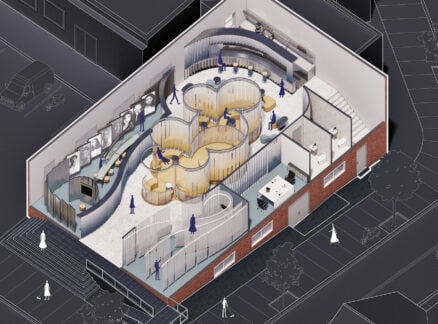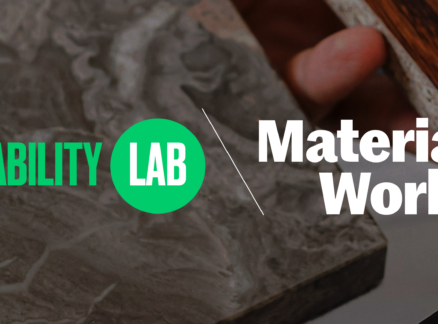June 1, 2006
Six Degrees of Claes Boman
An educator builds a consultancy from a network of former students.
At 18 months old, design consultancies are virtual infants—walking but wobbly. Stockholm-based Transit Studios, however, is poised to become Sweden’s largest multidisciplinary firm. Begun in 2004 as an incubator at Konstfack University College of Arts, Crafts, and Design, Transit has evolved into a loose collaborative of the fledgling companies in residence and alumni who continue to be affiliated.
At first blush Transit differs little from other incubators: every six months a group of eight to ten start-ups gains admittance to a 4,844-square-foot space inside a converted Ericsson factory in the suburb Telefonplan, where Konstfack recently relocated. Free offices, telecommunications equipment, and coffee allow them to develop their business plans and projects with relatively little stress. Director Claes Boman, a 40-year-old former engineer, meets regularly with participants to coach them on marketing strategies, business development, and presentation skills. “A lot of the focus at Konstfack and other design schools is on practicalities: putting in forms, registering your company, and doing your bookkeeping,” he says. “But you can buy that stuff. The most important part is the selling.”
By the time Boman hit upon his new way of selling the program, it was already demonstrating some real-world success. Architect Mats Karlsson—who became one of Transit’s first young Turks in residence in November 2004—has used the opportunity to pursue distribution partners for Exile, the origami-like corrugated cardboard house he developed as part of his Konstfack diploma project. “We have done some test projects,” Karlsson says of his work with Swedish aid organization AAPKI, “but it was sad we weren’t ready to test the structure in Pakistan over the winter.” He is also pitching the temporary building as a concert venue. Kajsa Öberg and Ida Forss launched a jewelry collection called Dada’s Diamonds; the first line, sporting Alice in Wonderland motifs such as teacups and top hats, is now sold at Svenskt Tenn. Branding firm Syntes Design—whose trip to Hong Kong’s 2005 Innovation and Design Expo was partly sponsored by Transit—wowed attendees with its designs, including the wraparound Sit Different concept chair for Apple. “There are no closed deals yet, but we are in negotiations with a handful of companies,” Syntes partner Andreas Enqvist reports. “It looks very promising.”
But Boman took Transit further, from postgraduate haven into consultancy, when the design management agency Our Demand presented him with a commission to revamp the facade of the local mall Kista Galleria. Boman assembled the team, assigning Karlsson as creative director and the more established MaMaDesign—which sublets an office inside Transit—to do the environmental graphics. The trio presented sketches to Kista throughout the spring.
Transit’s young designers now consider themselves part of the umbrella brand, which offers them access to paying gigs. When new projects come in, Boman will channel them into the Transit Studios network. “I’m everywhere,” he says. “Clients feel more comfortable coming to me than to one designer.” If the Kista project is realized, Boman believes it will justify his plans to charge future clients a fee for brokering connections.
Though the consultancy has generally received praise, Boman is ready to respond to those who oppose commercializing a school satellite: Transit’s all-subsidized annual budget is a meager $200,000, 20 percent of which comes from government grants. (Rent is free.) “We live on the brink of bankruptcy. My job is to get money in, and to make sure these young companies are working.” °





